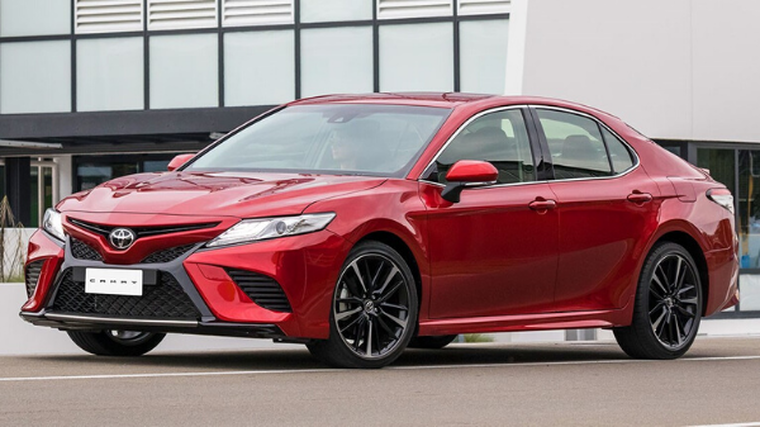Toyota recalls models over seatbelts and airbags

A range of Toyotas have been recalled after problems were discovered with their seatbelts and airbags.
The carmaker warns rear seatbelts in Camry models from 2019 may not operate as intended during an accident, increasing the risk of injury. The call-back was issued after the marque identified an incorrect assembly process during the manufacture of the dual-mode locking mechanism for rear seatbelts.
The driver’s seatbelt is posing a problem for Priuses built from 2014-19. Due to an improper assembly of electrical contacts inside the driver’s seatbelt reminder system, they may suffer abnormal wear and residue may build up. This could lead to the reminder staying on even when the seatbelt is correctly fastened.
In the same recall notice of February 10, Toyota says its Celica, Echo and RAV4 models from 1997-99 need airbags replacing. Vehicles equipped with Takata airbags of the non-azide driver inflator (NADI) type may absorb humidity over time, which could lead to inappropriate deployment and increase the risk of injury.
The marque has been contacting owners by registered letter and asking to contact their nearest authorised Toyota dealer to arrange a free repair or the national customer dialogue centre.
Kia Sorento, model year 2020
Recall issued: January 8, 2020. The hazard: Software upgrade of the multi-function camera is needed on some vehicles to improve the forward collision-avoidance safety system. What to do: Contact local Kia dealer.
BMW 320, 323i SE Sedan, 328A, 330, 318i A SE Sedan, model years 1997-2000
Recall issued: January 8. The hazard: Driver’s airbag needs checking. What to do: Owners are advised not to drive the vehicles until a test has been conducted at a local dealer.
Holden Commodore, model years 2018-19
Recall issued: February 10. The hazard: A clip on the fuel hose may contact the fuel-pump return line at the rear of the engine mat result in a fuel leak. What to do: Once Holden has acquired the parts, it will write to customers advising them to contact their Holden dealer to arrange for a free repair.
Ford Mondeo, model years 2014-18
Recall issued: February 10. The hazard: If battery acid leaks around the battery negative terminal it may, over time, cause the surrounding material to heat up to a point where it ignites. This could happen when affected vehicles are parked or unattended. What to do: Contact a Ford dealer.
Mazda BT-50, model years 2016-18
Recall issued: February 17, 2020. The hazard: The front brake hose may rupture during extreme driving conditions due to a manufacturing defect, which could lead to a loss of brake fluid, increased brake-pedal travel and thereby increase stopping distances. What to do: Owners are asked to register their details at www.MazdaCampaignCentre.co.nz and a dealer will arrange a time to conduct repairs.
Audi Q7, model years 2019-20
Recall issued: February 24. The hazard: The fastener securing an air-duct component in the curtain airbag could, in the event of an accident, detach due to a manufacturing discrepancy. This could result in the airbag not inflating sufficiently. What to do: Owners will be notified in writing.
Audi A8, model years 2010-16
Recall issued: February 24. The hazard: Fluid may leak out of the return hose for the hydraulic power steering and risks getting into the engine compartment and igniting if in contact with hot components. What to do: Contact an Audi Partner to arrange having the hose replaced for free.
Isuzu D-Max, model years 2018-20
Recall issued: February 24. The hazard: On isolated cases, cracking has been identified in the three-leaf rear suspension spring-eye bushes. This may cause the parking brake to be applied unexpectedly. What to do: Contact an authorised dealership or service agent.
Bosch brake disc rotor, after-market part for Holden Colorado and Isuzu D-Max
Recall issued: February 14. The hazard: Cracking of the brake-disc rotor hub may occur when the wall thickness in the neck area is thinner than expected. This may lead to reduced braking capacity and increase the risk of an accident. What to do: Stop using the product or vehicles fitted with it. Consumers should return the vehicle to the dealer that fitted it or their nearest dealer. Products not fitted to a vehicle may be returned for a refund.





